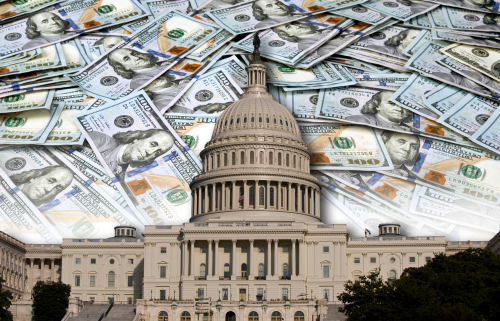U.S. Rep. Bill Huizenga (R-MI) introduced legislation that would create a bipartisan fiscal commission in Washington D.C.

The Fiscal Commission Act of 2023 would create a commission that would be charged with proposing recommendations to improve the nation’s medium and long-term fiscal trajectory. The commission would consist of Members of Congress as well as individuals from the private sector.
“The only way to get our nation’s fiscal house in order is for Congress to face reality and address the unsustainable trajectory of our national debt,” Huizenga said. “For too long, Congress has kicked the can down the road and not made the decisions necessary to secure our nation’s fiscal future for the next generation of Americans. The Fiscal Commission Act of 2023 requires Congress to vote on serious proposals from this bipartisan commission that will significantly improve the financial health of our nation.”
Rep. Scott Peters (D-CA) is a co-sponsor of this bill, along with Tom Cole (R-OK), Brad Schneider (D-IL), Victoria Spartz (R-IN), Ed Case (D-HI), William Timmons (R-SC), Chrissy Houlahan (D-PA), Adrian Smith (R-NE), Ami Bera (D-CA), David Schweikert (R-AZ), Jimmy Panetta (D-CA), Blake Moore (R-UT), Jared Golden (D-ME), and Cory Mills (R-FL).
The Fiscal Commission would consist of 16 members. The Speaker of the House, the House Minority Leader, the Senate Majority Leader, and the Senate Minority Leader will each select and designate four members to the commission. Of the selected commissioners, three will be members from their respective chambers and one will be an individual or expert from the private sector.
The function of the commission would be to identify policies to improve the fiscal situation in the medium term and to achieve a sustainable debt-to-GDP ratio in the long term. For any recommendations related to federal programs for which a federal trust fund exists, solvency must be improved for decades to come. Further, the commission shall propose recommendations designed to balance the budget at the earliest reasonable date, including at minimum, stabilizing the debt-to-GDP ratio at or below 100 percent within 10 years. Also, the commission shall propose recommendations that meaningfully improve the long-term fiscal outlook, including changes to address the growth of direct spending and the gap between revenues and expenditures.
Recommendations require a simple majority vote within the commission. In addition, the legislation requires each chamber to vote on the commission’s final proposal without amendment or delay.